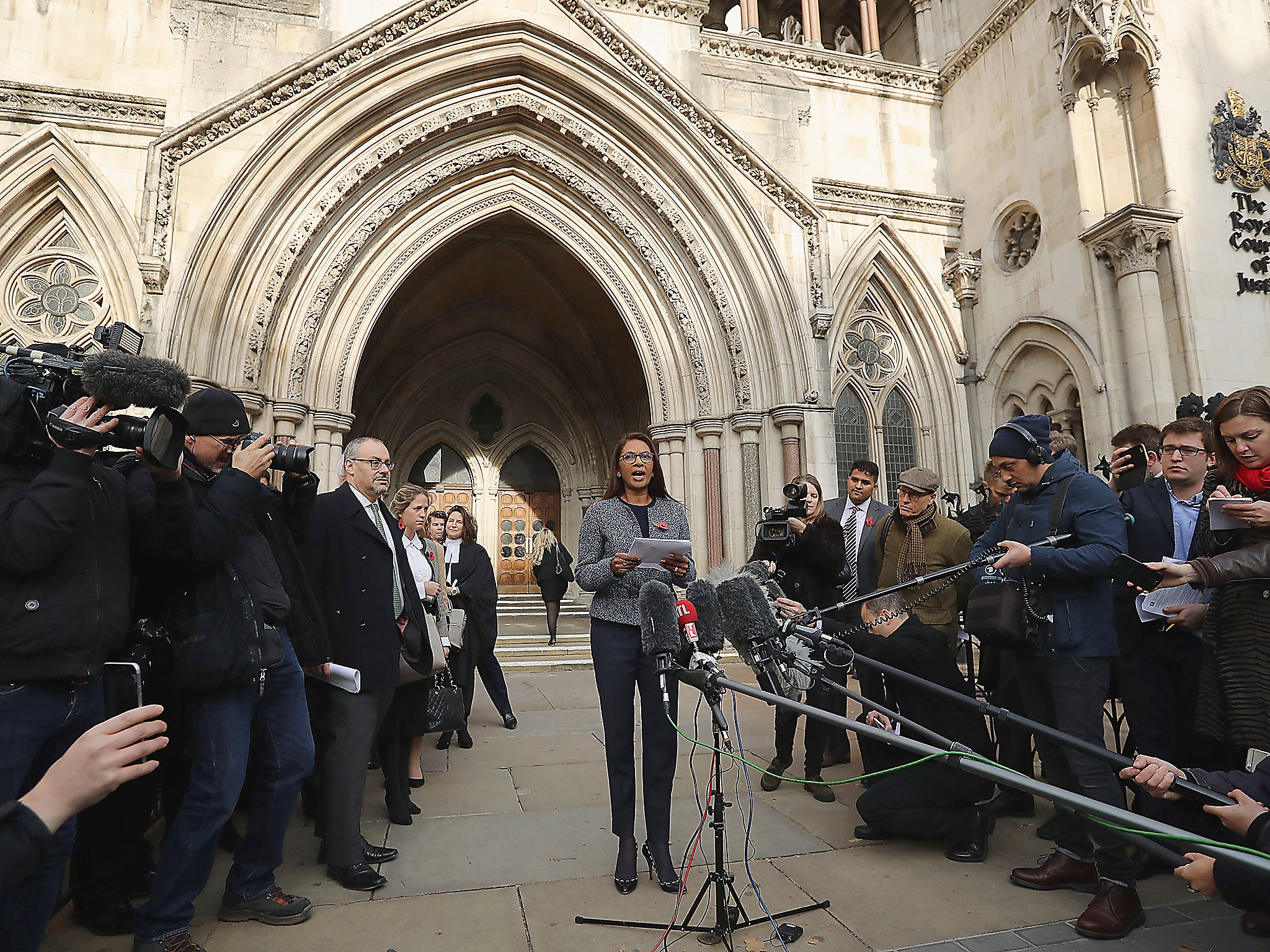If you think the High Court is interfering in democracy, then you don’t understand how Britain works
If our own Government can be so woefully ignorant of British history, perhaps it is time to adopt a written constitution to serve as a reminder


Your support helps us to tell the story
From reproductive rights to climate change to Big Tech, The Independent is on the ground when the story is developing. Whether it's investigating the financials of Elon Musk's pro-Trump PAC or producing our latest documentary, 'The A Word', which shines a light on the American women fighting for reproductive rights, we know how important it is to parse out the facts from the messaging.
At such a critical moment in US history, we need reporters on the ground. Your donation allows us to keep sending journalists to speak to both sides of the story.
The Independent is trusted by Americans across the entire political spectrum. And unlike many other quality news outlets, we choose not to lock Americans out of our reporting and analysis with paywalls. We believe quality journalism should be available to everyone, paid for by those who can afford it.
Your support makes all the difference.The Lord Chief Justice of England has stopped the UK’s Prime Minister from trying to overturn the result of the Civil War. That war, from 1642 to 1646 and which left one in 10 Englishmen dead in muddy fields, established the sovereignty of Parliament, which Theresa May’s Attorney General sought to circumvent by using an arcane power called the royal prerogative to trigger Article 50.
As he should have known, this power cannot be used to repeal an existing law; the 1972 statute by which Parliament took us into the common market can only be repealed by Parliament itself. If the Government can be so woefully ignorant of our constitutional history, perhaps it is time to adopt a written constitution to serve as a reminder.
The Attorney General was forced in court to concede that the EU referendum was merely advisory – it placed no obligation whatever on the Government to accept and act upon the very close result in which only 37 per cent of eligible voters wanted to leave, against 35 per cent of remainers and 28 per cent who did not bother to vote (perhaps because they believed, as opinion polls had indicated, that remain would carry the day).
Now that they have seen the economic and social damage that the referendum result has wrought, even before negotiations for exit have begun, MPs and peers must be given the opportunity to vote against any notice under Article 50, or else vote for a second referendum – perhaps one that, like most referendums in sensible democracies, is binding only if carried by a two-thirds majority.
How can they, the Brexiteers angrily ask, defy the will of the people, in a democracy? Despite the fact that they would be defying the will of only 37 per cent of the people, it has to be pointed out that these objectors do not know the true meaning of democracy. Our forebears have not fought and died for government by opinion poll, but for a representative democracy. That means, as the great conservative philosopher Edmund Burke pointed out in his Letter to the Electors of Bristol (one of the crucial documents in our unwritten constitution), that as their MP, he had a duty to do everything he could for them, but when it came to a vote in Parliament his duty as their MP was to vote as his conscience dictated, for what he believed to be the best interests of the nation.
So the simple fact is that, whatever the views of their constituents, our MPs are fully entitled to reject the bill that the Government will now have to bring forward to begin the process of departing from Europe. (The Government may, of course, appeal to the Supreme Court, although it is unlikely to succeed).
Thursday’s judgment was unforeseen – other than by a few lawyers familiar with the conventions and traditions of our “unwritten constitution”, a form of nudge-and-wink governance we have the distinction of sharing in the world only with Saudi Arabia.
It is the latest and perhaps the best example of why we really need to write our political bible, so that everyone from school children to the Attorney General can study and understand it. It could include (most constitutions do) a bill of rights which would be genuinely British, for example protecting the right to trial by jury. This would fulfil an election promise recently repeated by the Lord Chancellor.
It is anomalous that the nation of Milton, Shakespeare, Bentham and Mill cannot put into words the way in which its government must work.
No doubt it would take time to agree a draft, which would have to be amended by a constitutional convention and then submitted (how ironic) to a referendum. But it would be worth the effort for the educational value of helping people to understand, and actually take pride in how our rights were won.
These rights include the power of our courts to stop the executive (ministers and their civil servants) from using the royal prerogative to subvert our right to live in a representative democracy where Parliament is sovereign.
Geoffrey Robertson QC is head of Doughty Street Chambers
Join our commenting forum
Join thought-provoking conversations, follow other Independent readers and see their replies
Comments